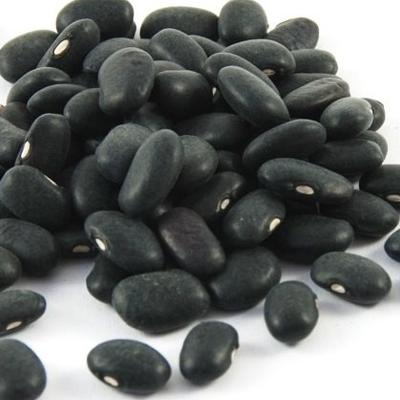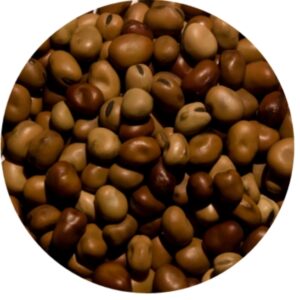Black kidney beans are a variety of kidney bean with a distinctive black color. They are commonly used in various cuisines and are appreciated for their flavor and nutritional benefits. Here’s a detailed overview of black kidney beans:
Characteristics:
- Appearance:
- Color: As the name suggests, black kidney beans are black, which gives them a unique look compared to the more common red kidney beans.
- Shape: They have a kidney-shaped appearance and are slightly smaller and rounder compared to other kidney bean varieties.
- Flavor and Texture:
- Flavor: Black kidney beans have a mild, slightly nutty flavor that pairs well with various seasonings and ingredients.
- Texture: When cooked, they are firm and slightly creamy, maintaining their shape well in dishes.
Nutritional Profile:
- Protein:
- Black kidney beans are a good source of plant-based protein, making them a valuable protein source for vegetarians and vegans.
- Fiber:
- They are high in dietary fiber, which supports digestive health, helps regulate blood sugar levels, and contributes to overall heart health.
- Vitamins and Minerals:
- Black kidney beans provide essential nutrients such as iron, magnesium, potassium, and folate. They also contain antioxidants that help protect against oxidative stress.
- Low Fat:
- They are low in fat, making them a healthy addition to a balanced diet.
Culinary Uses:
- Soups and Stews:
- Black kidney beans are a common ingredient in soups and stews, adding texture and flavor. They work well in dishes like chili, minestrone, and black bean soup.
- Salads:
- Cooked black kidney beans can be added to salads for extra protein and fiber. They pair well with vegetables, herbs, and dressings.
- Main Dishes:
- They can be used in main dishes such as bean burgers, casseroles, and burritos. They are a versatile ingredient that complements a wide range of flavors.
- Side Dishes:
- Black kidney beans can be served as a side dish, seasoned with spices or herbs, or mixed with grains and vegetables.
- Mexican and Latin American Cuisine:
- They are often used in Mexican and Latin American dishes, including tacos, enchiladas, and rice and beans.
Cooking Tips:
- Preparation:
- Dried Beans: Rinse and soak dried black kidney beans overnight or use a quick-soak method. After soaking, cook them in fresh water until tender, usually 1-1.5 hours.
- Canned Beans: Canned black kidney beans are convenient and ready to use. Rinse them before use to reduce sodium content.
- Cooking Time:
- Cooking times may vary based on the method and type of beans. Ensure beans are cooked until tender but not mushy.
- Seasoning:
- Black kidney beans absorb flavors well. Season with herbs, spices, and aromatics like garlic, onions, and cumin for enhanced taste.
- Storage:
- Cooked Beans: Store cooked black kidney beans in an airtight container in the refrigerator for up to 5 days or freeze for longer storage.
Health Considerations:
- Digestive Health:
- The high fiber content supports healthy digestion and helps prevent constipation.
- Blood Sugar Control:
- The fiber and protein in black kidney beans help stabilize blood sugar levels, making them beneficial for individuals with diabetes.
- Heart Health:
- The fiber, potassium, and antioxidants in black kidney beans contribute to cardiovascular health by helping to lower cholesterol and blood pressure.
Keywords:
- Black Kidney Beans
- Plant-Based Protein
- High-Fiber Beans
- Nutritious Legume
- Versatile Beans
- Mexican Cuisine
- Bean Salads
- Healthy Beans
- Dried Beans
- Canned Beans


Reviews
There are no reviews yet.